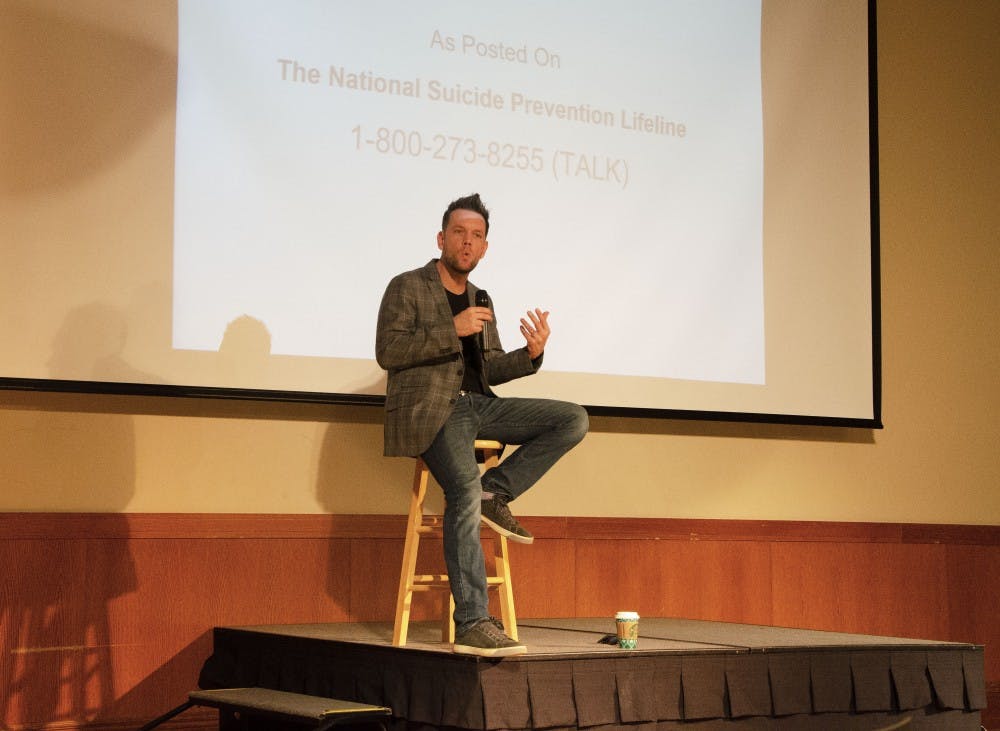Dozens of students in the audience face the stage as a man sings a song about obedience on a stool. The small tune fills the Student Center Ballroom as the first of 18 characters in the one man show.
Originally meant for theater, broadway actor Josh Rivedal led students through his personal experiences with mental illness through acting and conversation for educational purposes.
“[My one man show is] the story of me growing up [from] ages 5 to 25 going into show biz and butting heads with my dad,” Rivedal said. “What triggered me [to write] this piece was I lost my dad to suicide in 2009. He was 60. I was 25.”
Rivedal’s program, “The i’Mpossible Project,” lasted an hour. His story began with a church hymn and ended in a whisper at his father’s funeral.
The recount continued as Rivedal portrayed his experience suffering from suicidal thoughts in his fourth floor New York apartment. After not speaking to his mom for more than six months, Rivedal’s phone call to her is what changed his situation.
“I started to talk to her about what was going on, and she stopped me,” Rivedal said. “She said, ‘Josh get right with God — get back in the church.’ I stopped, and I was upset because that stuff didn’t make sense to me when I was well [so I thought it wasn’t] going to make sense while I’m unwell.
“I truly was offended, [but] I didn’t figure this out until years later. I threatened to hang up on her. The reason why I was truly offended was she was trying to fix me. None of us, no one in the history of universe or world, can fix someone. You can’t fix anybody because our brains work differently.”
During his presentation, Rivedal spoke about the importance of being aware of those around us and utilizing campus resources.
SGA President Isaac Mitchell, along with Alpha Tau Omega, Sigma Kappa, Panhellenic association, the Office of Greek Life, the Office of Student Life, and the Office of Health, Alcohol and Drug Education, said they agreed with Rivedal in the importance of mental health awareness.
“Obviously Student Government gets to do some cool things like shuttle you to football games or give out donut holes like we did today,” Mitchell said. “However, we also like to do very important things like talk about sexual assault, mental health and academics. This is going to be one of those examples where we talk about suicide prevention.
As with all events about mental health, a counselor was present and available to assist students who felt triggered from the presentation.
“There's a lot of things [I took away from Rivedal’s presentation]. There's more of a vocab out there,” said freshman Nicholas Stecovich.
Rivedal provided numbers for crisis hotlines at the end of his presentation, as well as contact information for Ball State’s counseling center.
“I truly believe, and I witnessed this first handedly, that we are not messed up. We are not screwed up,” Rivedal said. “We have everything inside of us to be whole and fulfilled. But it takes others to bring that evidence [to light].”
Contact Pauleina Brunnemer with comments at pdbrunnemer@bsu.edu or on Twitter @pauleina15.





